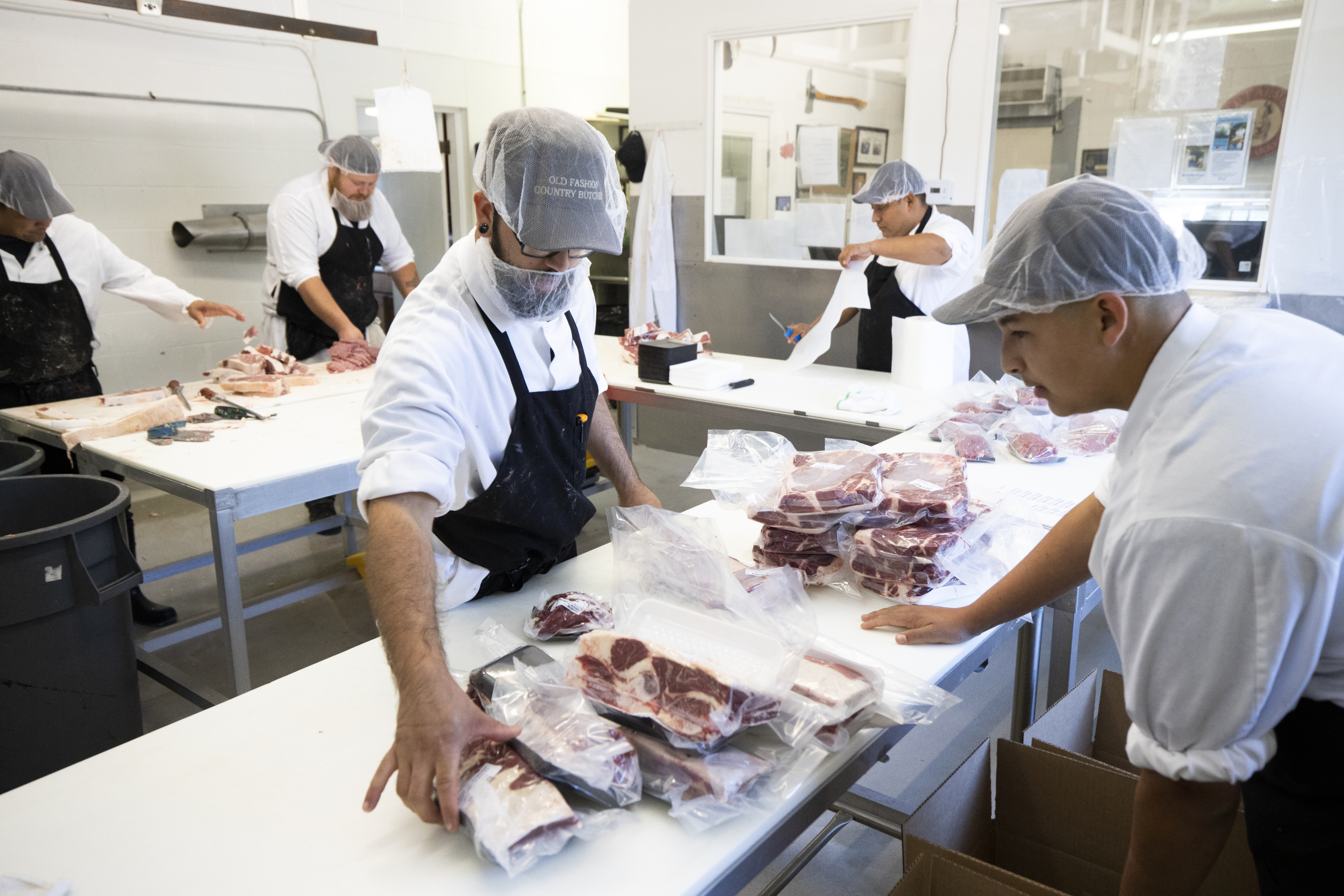President-elect Donald Trump and his team have repeatedly vowed to carry out the largest mass deportation operation in American history. And while they continue voicing their rhetoric, providing little details as to how they will carry out those operations before they take office, industries across the country are already preparing for potentially devastating effects.
That is the case for the Colorado meatpacking industry, which relies on foreign-born labor, documented or not, more than almost any other industry in the country, Axios reports.
“If you took immigrants out of this workforce, there is no way they can run those packing houses,” Kim Cordova, president of UFCW Local 7 in Colorado, told the outlet, adding that mass deportations “would kill the industry.”
Meatpacking is dangerous and difficult to staff, even in the best circumstances. But since the COVID pandemic hit, it has become even more difficult to find workers for these jobs.
“If you ask anybody on the packing side of things, going back before COVID… no one’s going to tell you there’s a bigger challenge in the meat supply chain than labor,” Ethan Lane, vice president of government affairs for the National Cattlemen’s Beef Association said.
In Greeley, a college town home to the University of Northern Colorado and Aims Community College, the JBS meatpacking plant hires mostly immigrants who tend to have temporary or vulnerable immigration statuses, including DACA or refugee protections, leaving them susceptible to policy changes, according to Cordova.
The JBS facility is the largest employer in Weld County, employing roughly 5,000 people, or about 4% of Greeley’s population. Experts say a large number of deportations could be enough to tip the industry into crisis, as workers could be deported, flee or stop showing up to work even if plants aren’t being raided.
That scenario, coupled with the industry’s difficulty in filling their jobs, could have ripple effects on the rest of the country, particularly raising concerns over the availability and price of meat, according to Axios.
But the effects of mass deportations would not just be felt in the meatpacking industry in Colorado. In fact, it would likely also devastate the entire U.S. economy.
Immigration experts and advocates testified on the matter Tuesday during a Senate hearing, arguing that Trump’s vow to carry large-scale deportations would have unintended consequences for Americans.
“The president-elect’s mass deportation plans would crash the American economy, break up families and take a hammer to the foundations of our society by deporting nearly 4% of the entire U.S. population,” Aaron Reichlin-Melnick, a senior fellow at the non-partisan American Immigration Council, said in Congress.
An analysis by his group estimates that it would cost nearly $1tn to carry out Trump’s mass deportation plan and slash the annual GDP between 4.2% and 6.8%— a level on par with the recession of 2008, The Guardian reports. Asked how Trump’s plans would affect Americans financially, Reichlin-Melnick said it would exacerbate inflation and cause food prices to rise.
“A single worksite raid in 2018 under the Trump administration at a beef plan in Tennessee led to ground beef prices rising by 25 cents for the year that the plant was out of operation following the raid,” he said.







